Shihao Qi
The Hong Kong Polytechnic University
A Survey of Large Language Models in Mental Health Disorder Detection on Social Media
Apr 03, 2025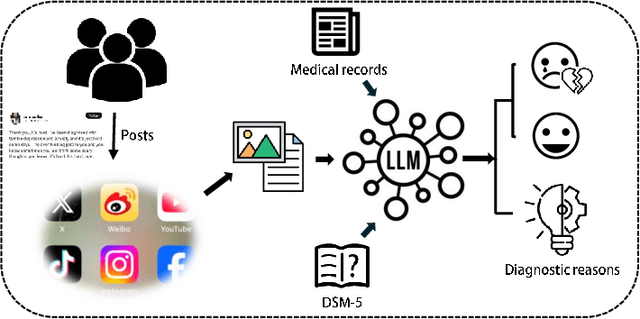
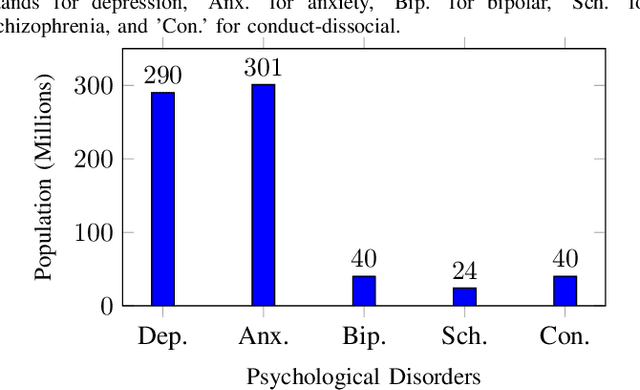
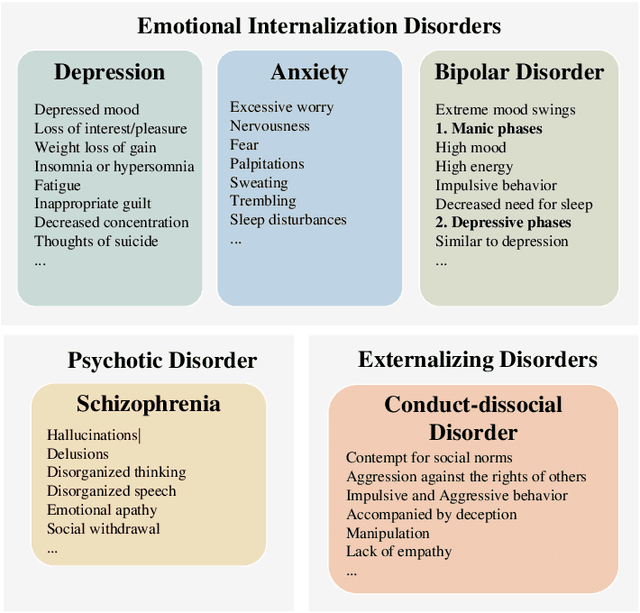
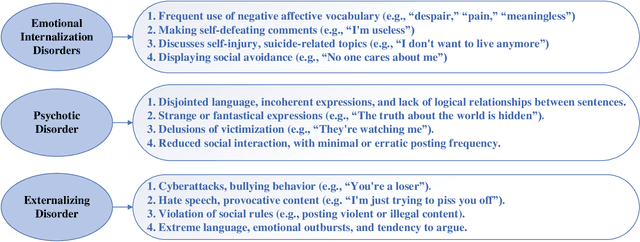
Abstract:The detection and intervention of mental health issues represent a critical global research focus, and social media data has been recognized as an important resource for mental health research. However, how to utilize Large Language Models (LLMs) for mental health problem detection on social media poses significant challenges. Hence, this paper aims to explore the potential of LLM applications in social media data analysis, focusing not only on the most common psychological disorders such as depression and anxiety but also incorporating psychotic disorders and externalizing disorders, summarizing the application methods of LLM from different dimensions, such as text data analysis and detection of mental disorders, and revealing the major challenges and shortcomings of current research. In addition, the paper provides an overview of popular datasets, and evaluation metrics. The survey in this paper provides a comprehensive frame of reference for researchers in the field of mental health, while demonstrating the great potential of LLMs in mental health detection to facilitate the further application of LLMs in future mental health interventions.
GKG-LLM: A Unified Framework for Generalized Knowledge Graph Construction
Mar 17, 2025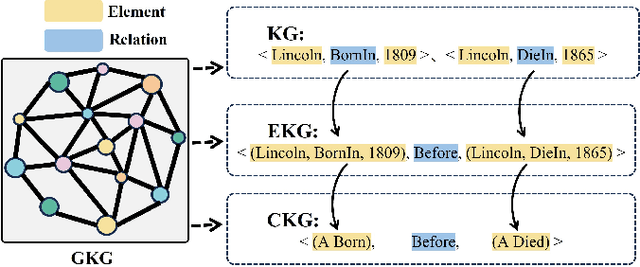



Abstract:The construction of Generalized Knowledge Graph (GKG), including knowledge graph, event knowledge graph and commonsense knowledge graph, is fundamental for various natural language processing tasks. Current studies typically construct these types of graph separately, overlooking holistic insights and potential unification that could be beneficial in computing resources and usage perspectives. However, a key challenge in developing a unified framework for GKG is obstacles arising from task-specific differences. In this study, we propose a unified framework for constructing generalized knowledge graphs to address this challenge. First, we collect data from 15 sub-tasks in 29 datasets across the three types of graphs, categorizing them into in-sample, counter-task, and out-of-distribution (OOD) data. Then, we propose a three-stage curriculum learning fine-tuning framework, by iteratively injecting knowledge from the three types of graphs into the Large Language Models. Extensive experiments show that our proposed model improves the construction of all three graph types across in-domain, OOD and counter-task data.
 Add to Chrome
Add to Chrome Add to Firefox
Add to Firefox Add to Edge
Add to Edge